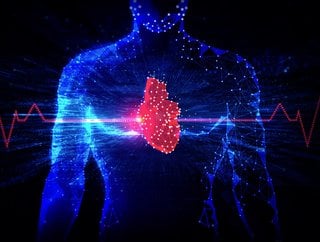Machine learning predicts heart failure for early treatment

Artificial intelligence could help predict cardiovascular diseases, such as atrial fibrillation and heart failure, in patients by analysing the genes in their DNA, according to a study by researchers at Rutgers University.
Atrial fibrillation and heart failure are responsible for 45% of all cardiovascular disease deaths, and it is estimated that over 75% of premature cardiovascular diseases can be prevented. However, despite significant advancements in cardiovascular disease diagnostics, half of the affected patients die within five years of diagnosis due to genetic and environmental factors.
AI and machine learning can help accelerate the identification of genes linked to cardiovascular disease, improving diagnoses and treatment.
“With the successful execution of our model, we predicted the association of highly significant cardiovascular disease genes tied to demographic variables like race, gender and age,” says Zeeshan Ahmed, a core faculty member at the Rutgers Institute for Health, Health Care Policy and Aging Research (IFH) and lead author of the study, published in Genomics.
Significant differences among race, gender, and age
The researchers used AI and machine-learning models to investigate genes linked to the most common manifestations of cardiovascular disease and identified a group of genes significantly associated with the disease. The study also found significant differences among race, gender, and age factors, with age and gender factors correlating to heart failure and age and race factors correlating to atrial fibrillation.
While age and gender factors correlated to heart failure, age and race factors correlated to atrial fibrillation, say the researchers. For example, in the patients examined, the older the patient, the more likely they were to have cardiovascular disease.
“Timely understanding and precise treatment of cardiovascular disease will ultimately benefit millions of individuals by reducing the high risk for mortality and improving the quality of life,” says Ahmed.
Researchers say future research should extend this approach by analysing the full set of genes in patients with cardiovascular disease, which may reveal essential biomarkers and risk factors associated with cardiovascular disease susceptibility.






